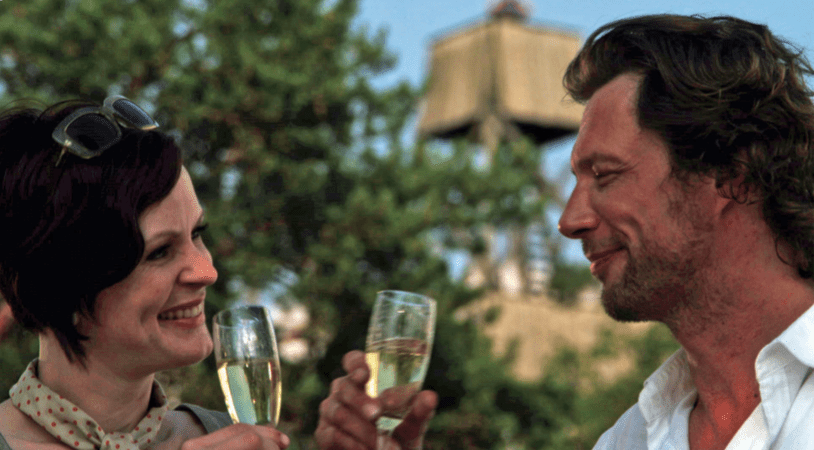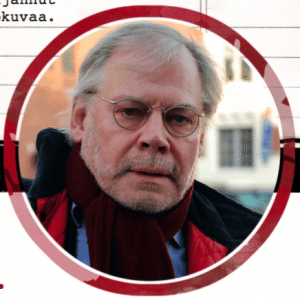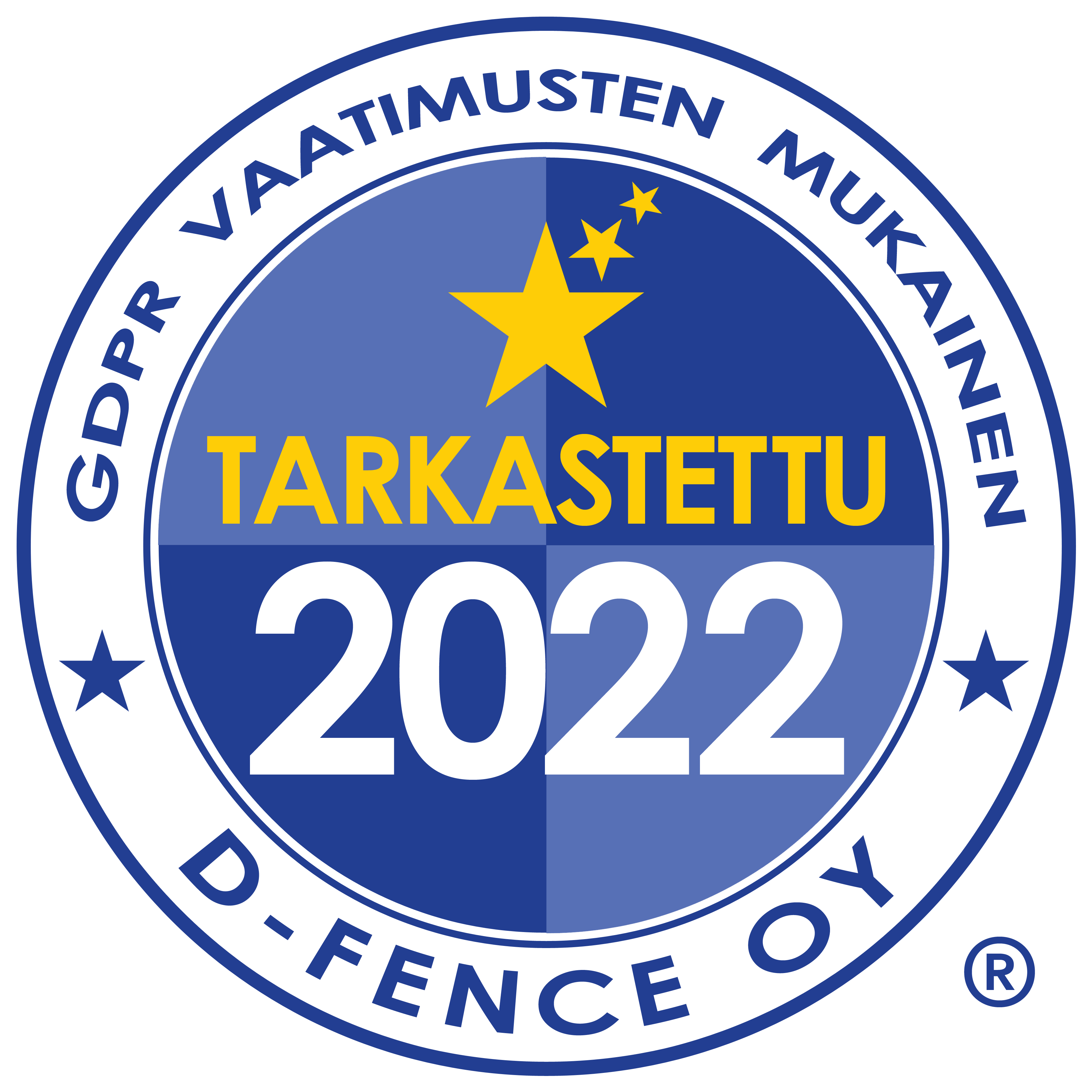Heavy water
Lauri Törhönen is a movie director and a professor of cinematic arts (ret). He has directed four Vares movies for Solar Films.
Solar Films seems to be in a state of creative chaos – but that is ostensible. No one even has a haircut without a green light or request from Markus – especially not Markus himself. A producer has to be able to make decisions and stand behind them, whatever happens. And a lot of things have happened. Markus walks in a slightly wobbly manner and a director has to continuously watch out not to be left under him, should he fall down. But he doesn’t seem to fall.
My relationship with Markus has been slightly traumatic, which most likely is because of a mutual misunderstanding. When they called me from Solar and asked me in to negotiate a movie deal, I thought it was about time. I had directed five movies for Donner, in twenty years. Markus asked me to direct four, in sixty – days! Because we both know colleagues who wouldn’t consider directing even one movie in that time, I was only flattered. I thought it was a win-win deal. The call came to me, because Markus was practically out of domestic options – and the minimum requirement for a Vares director is to understand Finnish. No one bothered to explain to me, why the other guy would direct only two movies in sixty days.
That wasn’t my headache, like it wasn’t.
If Markus Selin didn’t exist, someone should invent him.
Directing a movie is not a sports competition, although it often feels like that. There’s no reason to be proud, if you’ve directed one movie in twelve days (Riisuminen), another in seventeen (Mannen utan ansikte) and a third one in twenty two days (Insiders). I can’t judge the quality of my movies; the qualification process always involves matters of opinion and other stuff – but I can say that they at least look like feature films should.
Every producer knows, that the director always uses all the resources at his disposal. And the director – without his own fault – has at least a thousand ways of ending up in a situation where he needs more resources. It’s usually overtime, which makes a lot of the crew members happy. My contract had a definitive clause: no extra days and no overtime.
The casting process of the Vares movies was an unique endeavour; there must have been a 100 actors involved. During the pre-production, Markus changed the title actor. He can also be heard saying: “There’s no way that dude will appear in our movies”. OK. A no is a no.

When I asked Minna Haapkylä for a role of a hysterical woman, I received a rare accolade: “I wouldn’t accept the role, if it wasn’t for you”. What, me?
Minna wanted to get away from the blonde-maiden-of-Finland-look that I had forced upon her in the film “Raja 1918”. She wanted a dark, geometrical hairdo. I didn’t know it meant a one-sided head. Minna’s head was not a problem cause Antti Reini is quite symmetric. To save time, we shot all directions by lighting the actors only from one direction, then switched their places and turned Antti to his own mirror image in the post-production. No one ever noticed that.
Donner often gets his hair cut, way too often. He still has the only Oscar statue in Finland in his cupboard, from producing to Bergman. I have told everyone who wants to hear it, that don’t judge the book by its cover. The productions of Markus Selin and his partner-in-crime Jukka Helle are as well and as tightly planned and buttoned up than the Donner productions at their best. I am able to evaluate that, because I must be the only one of Donner’s directors who hasn’t been fired during the first mutual production, for going over the schedule or the budget.
The director doesn’t make the movie alone, nor does the producer produce alone. The producer must be able to tune up the production machine in a way that suits the director. After the Vares production, I felt like I had had a six-month season ticket for a rollercoaster ride called Turku. But I got to do my job my way. I didn’t have to worry about other people’s problems. I don’t know how much problems I created myself. An irreplaceable, gutsy lady and a very skilled line producer Sikke Rautiainen conducted the Solar Films Orchestra, which functioned like a clockwork. Director of photography Jari Mutikainen was a great workmate; without him the movies would never have seen the light of day. Sikke has won a World Championship Rally as a co-driver, Jari races motorcycles in the woods. Maybe that’s why they were able to work with the speed that was required from us.
To save time, we shot all directions by lighting the actors only from one direction, then switched their places and turned Antti to his own mirror image in the post-production. No one ever noticed that.
I’m not aware, that there are any pictures of me sitting in a director’s chair, holding a megaphone next to an Arriflex, with a three-foot zoom lense. The set needs to be in front of the camera, close; that’s where the work is done. The Art Academy of Turku and the well-functioning Film Commission have trained a skillfull undergrowth to support the movie productions. Everything is available and the good citizens of Turku are much more welcoming than anyone in Helsinki, ever.
When we started the Vares circus, I issued a standing order not to act in the manner of a film crew. No megaphones, no rattling walkie-talkies, no unnecessary traffic control. For that, they have traffic lights in Turku and with an actor like Antti Reini, anything goes. It took a few days before the slowest members of the crew started to believe that you can make movies also with this method. We had reserved parking space for our vehicles in front of a local bar; the father of the Koivu hockey players drove his car into our frame. The AD was on his way to get rid of him – but we decided to shoot anyway – and the gentleman ended up in the film, adding local color. All in all, we get to see Turku more and in a more economical way than we ever saw Helsinki in the “Komisario Palmu” films, by Matti Kassila – whom I respect very much.
Only one of my four Vares movies was meant to be released theatrically. They asked me, which one. I didn’t know what to answer. When you only have sixty shooting days, you can’t take days out from one film or add them to another one. My suggestion was; if 60 000 Vares fans from Turku accept Antti Reini’s face as their true detective, they’ll pay the ticket fare to see them all in movie theater – despite the director is someone called Törhönen. Rampe Toivonen put that idea to a little spoon and served it to the producers. That idea was worth 200 000 additional admissions. Thank you, Turku.
In an odd way I feel very close to Markus Selin, although I don’t know him. We are brothers-in-arms, in a strange way. The old Finnish saying should’ve been hammered to our heads, already as children: don’t lick the hand that bites you.
If Markus Selin didn’t exist, someone should invent him. But then you’d also have to invent Jukka Helle. Together thay are like heavy water. Heavy water is liquid, that contains a larger than normal amount of the hydrogen isotope. It is used to manufacture the hydrogen bomb. Making a movie is making a hydrogen bomb – and the effect of a feature film can be like an explosion, at its best.
But Solar Films wouldn’t be anything without the Cinderella. The producers and the directors can be short-haired or long-haired, but nothing in this world – especially not in film business – would work without Ida Kallio, who’s always cheerful and helpful!




